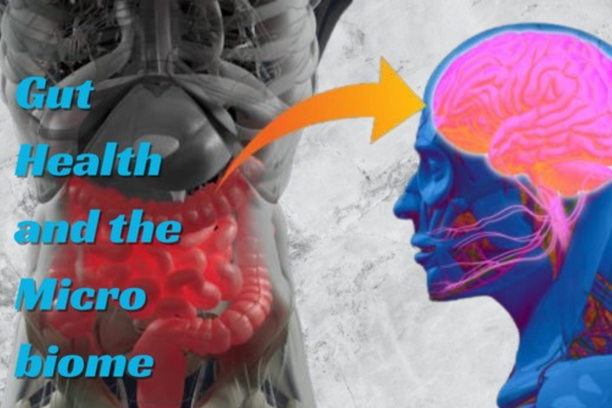Why Gut Health Matters in 2025
Gut health has emerged as one of the most significant pillars of wellness in 2025, with new research linking a balanced gut microbiome to everything from improved immunity to better mental health. In the UK, USA, and Canada, consumer interest in gut health, gut microbiome, and digestive health has surged due to growing awareness about how deeply our gut influences overall well-being. The benefits of a balanced gut microbiome extend far beyond digestion, playing a key role in hormonal regulation, mood stability, and even skin clarity. As microbiome health becomes a central focus of preventative health, understanding how to nurture it through diet is more important than ever.
What Are Probiotics and How Do They Support Your Gut?
Probiotics are live microorganisms—often called “good bacteria”—that help maintain or restore healthy gut flora. Found naturally in fermented foods, they aid in restoring intestinal microbiota, improving gut flora balance, and enhancing digestion. While probiotics work within your digestive system, prebiotics serve as the food for these beneficial bacteria, supporting their growth. Incorporating fermented foods such as yogurt or kimchi into your meals can significantly boost your digestive enzymes and provide essential immune system support, helping to maintain a healthy gut microbiome.
Signs You Need More Probiotic Foods in Your Diet
How do you know your gut microbiome is out of balance? Common signs include persistent bloating, poor digestion, fatigue, skin problems, and even mood disorders. These are often signs of an unhealthy gut microbiome. The gut-brain connection means your mental health can also be affected—many people wonder, does gut health affect anxiety and mood? The answer is yes. Moreover, gut issues can lead to skin flare-ups and chronic inflammation. Recognizing these symptoms early allows you to implement natural remedies for gut inflammation and restore harmony to your digestive system.
Top 10 Probiotic-Rich Foods to Restore Your Gut Microbiome
Here are the top ten foods that can naturally replenish your gut with healthy bacteria:
- Yogurt (with live cultures) – A staple in many households, it’s one of the easiest healthy gut foods to consume daily.
- Kefir – A fermented milk drink richer in probiotics than yogurt.
- Sauerkraut – Fermented cabbage packed with live cultures and fiber.
- Kimchi – A spicy Korean side dish loaded with healthy bacteria and nutrients.
- Miso – A Japanese fermented soybean paste, great in soups and sauces.
- Tempeh – A plant-based protein made from fermented soybeans.
- Kombucha – A fermented tea rich in probiotics and antioxidants.
- Pickles (naturally fermented) – Opt for those without vinegar to get probiotic benefits.
- Buttermilk (traditional) – Contains active cultures that support digestion.
- Natto – A potent Japanese food high in probiotics and vitamin K2.
All of these microbiome-friendly foods for IBS relief not only improve digestion but also contribute to a fiber-rich diet, further aiding your gut health. These fermented foods that aid digestion are easily available and highly beneficial.
How to Add These Foods to Your Daily Diet
Incorporating these foods doesn’t have to be complicated. Start with small changes: add kimchi to your lunch, sip kombucha in the afternoon, or enjoy yogurt with berries for breakfast. For those living in the UK, try out UK gut-friendly recipes using fermented foods like sauerkraut-topped baked potatoes. In Canada, you’ll find many best probiotic brands in Canada for gut health that are easy to integrate into your meals. Batch-prepping miso soups or tempeh stir-fries can also help maintain a gut-focused routine.
Additional Tips to Support Your Micro biome Naturally
Diet is key, but there’s more to gut health. Prioritize sleep, as quality rest supports bacterial diversity. Manage stress with practices like meditation or walking. And if you’ve recently taken antibiotics, you’ll want to know how to restore gut health after antibiotics. Start with daily habits to boost gut bacteria naturally—like adding fiber, fermented foods, and staying hydrated. Reducing chronic inflammation and increasing short-chain fatty acids through dietary fiber can dramatically improve gut micro biome resilience.
Should You Consider Supplements?
Supplements can fill in the gaps when dietary changes aren’t enough—especially if you’re over 50. The best probiotics for gut health over 50 usually include multiple strains and billions of CFUs. When selecting a product, ensure it’s third-party tested and tailored to your needs. Consult resources on gut health protocols recommended by doctors in UK, or if you’re in the States, consider personalized micro biome tests in the USA to tailor your supplement regimen. Parents in Canada may also ask, are probiotics safe for children’s gut health in Canada? Most are, but always consult your healthcare provider first.
Final Thoughts: Building a Gut-Healthy Lifestyle in 2025
To thrive in 2025, making gut health a lifestyle is essential. Start small—choose yogurt over sugary snacks, opt for kimchi over processed condiments. Recap your go-to probiotic foods, and develop habits that support micro biome diversity. As new science continues to link gut health with immunity, cognition, and aging, now’s the time to embrace a healthier, more vibrant lifestyle. For more information, explore our guides on improve gut health naturally at home or learn about the functional medicine approach to gut health. Your gut—and your entire body—will thank you.




